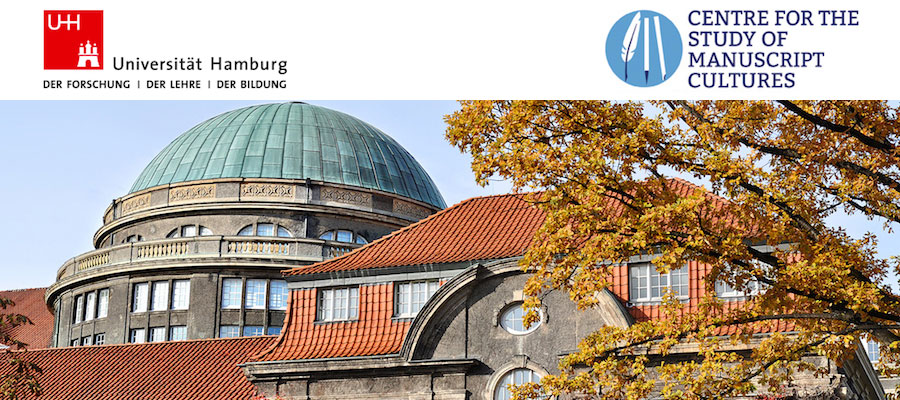The Graduate School of the Cluster of Excellence “Understanding Written Artefacts” and the Centre for the Study of Manuscript Cultures (CSMC) invite applications for doctoral scholarships within the Graduate School Scholarship Programme (GSSP) of the German Academic Exchange Service (DAAD) starting on 1 October 2021.
Successful applicants will receive a full scholarship plus health insurance and monthly allowances for a period of three years. An extension to four years is possible in well-grounded cases.
We are looking for highly qualified and very motivated English-speaking international candidates (non-German citizens) holding a Master, Diploma or equivalent degree in any discipline concerned with the study of manuscript cultures and written artefacts, regardless of region.
At the time of the nomination (in early 2021), the last final exam (Master degree) should not have been taken more than six years ago. Candidates who have been living in Germany for more than 15 months at the time of nomination are not eligible.
The CSMC is a unique research centre for the historical, comparative and scientific study of manuscript cultures and written artefacts from Asia, Africa, and Europe, building on decades of manuscript studies at the University of Hamburg.
In 2019, the Cluster of Excellence “Understanding Written Artefacts" has taken up its work, involving researchers from more than 30 disciplines at two faculties, seeking to establish a unified, comparative and comprehensive approach for studying how the production of written artefacts has shaped human societies and cultures, and how these in turn have adapted written artefacts to their needs. Aims include the identification of recurring patterns and documenting the diversity of manuscript cultures and written artefacts, especially in Asia and Africa, to preserve them as cultural heritage.
